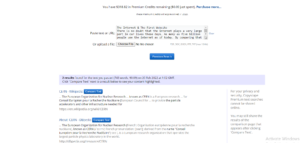There is no doubt that the internet plays a very large part in our lives these days. As many as five billion people use the internet as of today. By comparing that figure to the total number of people living on the face of this Earth, you can easily conclude that the likelihood of any citizen of the world being an internet user is significantly more than fifty percent. Just to reinforce how important the internet is, we will expose you to more numbers. There are, at the very least, thirty-five billion devices connected to the internet today. To give you an estimate of how big that number is, you divide it by a hundred and that figure is still bigger than the total number of people living on this Earth today. The third astonishing statistic about the spread of the internet: there are no less than seven thousand internet services in the United States of America right now. By an internet service, we mean the provision of the internet by one company such as Xfinity internet.
Statistics aren’t the only way to showcase the importance of the network of networks. Just look at what you are doing right now. Chances are you use the internet to read online content like this most of the nights, if not every night. Before that, you probably use the global network to tell the world how you and your friends are performing the coolest activity out there. Obviously, you planned that activity using instant messaging apps that use the internet as well. While at work, you must use the internet to not only upload your work but also to see what work you have been assigned to. Some of your work must also involve software that uses the global network. Yet another instance you must use the internet at home would be communication with other colleagues in the office and family members at the house. You should also be using the internet during your commute. After all, online apps such as Google Maps even tell you about current traffic! Finally, while getting ready, you probably tell internet devices such as Alexa to read out the news, tell you about the weather, and play some songs.
Whenever something carries so much influence, it is bound to be talked about at dinner tables and tea parties. The same is the case with the internet. Certain people like to contemplate the more practical aspects of the global network such as ways to increase speeds and cut costs. Others like to talk about the semantics of the global network more and spend their time figuring out how different terms related to the phenomenon are related to one another. Yet another section of the human race has a more historical focus; they like to talk about how the internet was founded and who contributed to its development since the many years it has been functioning. Do you belong to the sector of the populace that we mentioned last? If yes, get psyched! Today, in this article, we will be discussing the first website and the company it was built for.
European Organization for Nuclear Research
The first website was built for the European Organization for Nuclear Research, more commonly known as CERN due to its French name – Conseil européen pour la recherche nucléaire. This organization, according to Wikipedia, is responsible for the provision of “the particle accelerators and other infrastructure needed for high-energy physics research.” Sir Thomas Berners Lee designed this website. Not surprisingly, he, as the inventor of the first website, is also known as the inventor of the World Wide Web. The creation of the website was performed under a project named ENQUIRE. Although work was underway in 1989 as well, the first web page officially went live not a day before 6th August, 1991. Now, the fact that we can jump from one page to the other through hyperlinks in the HTML code sounds like no big deal but this feat was considered a big milestone in technology at that time.
Conclusion
If someone had asked even the British computer scientist, Tim Berners Lee, whether he even thought that one day, almost two-thirds of the world’s population would be benefitting from his creation, his answer would definitely have been no. It is, indeed, inspiring that what started in a small lab now impacts the entire world.

